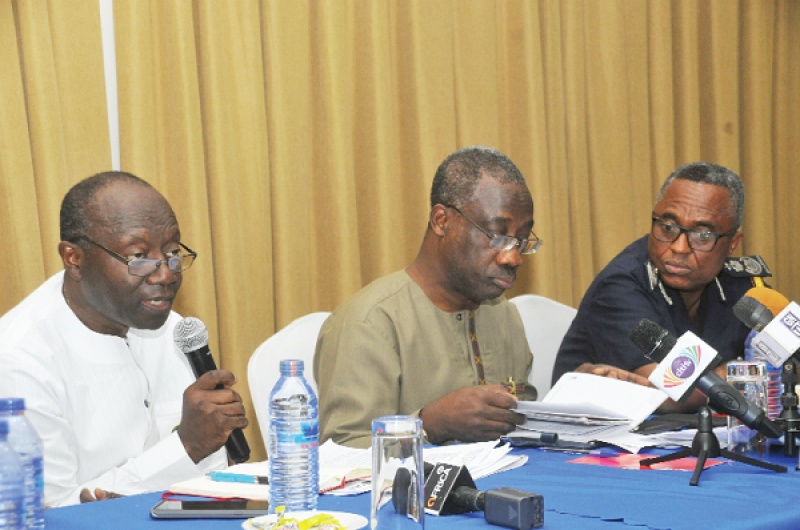
The Minister of Finance, Mr Ken Ofori-Atta, has asked the Ghana Revenue Authority (GRA) to go all out to enforce tax laws to help recover GH¢4.4 billion from 427 corporate tax defaulters and other entities.
He disclosed that companies in the Customs Division of the GRA owed GH¢4 billion while others in the Domestic Tax Revenue Department (DTRD) also had GH¢400 million outstanding taxes.
“An analysis of the top 15 debtors’ outstanding debts showed that the principal and penalties with interest summed up to GH¢3 billion, but the GRA and corporate bodies are not managing the situation well.
“Going forward, we will be looking at enforcement actions that will include freezing of the bank accounts of recalcitrant companies, auctioning of warehouses, revoking of the licences of defaulting oil marketing companies (OMCs) and seizing of the properties of defaulters,” he stressed.
Engagement
Mr Ofori-Atta gave the directive at a meeting organised by the GRA to engage the top 100 taxpayers in the country in Accra on Friday.
The meeting was meant to discuss initiatives being implemented by the GRA, in collaboration with the McKinsey Group, an international consultancy firm, to collect tax revenue.
It was also meant to educate the Chief Executive Officers (CEOs) of the corporate entities on their role in ensuring that their employees paid the right taxes to enable the country to meet its tax revenue projections.
Ugly picture
The country’s tax revenue target for 2018 is GH¢40.22 billion but as of the end of June, the GRA had managed to collect about GH¢16.9 billion.
That means about GH¢23.4 billion needs to be raised before the year ends.
In view of that, Mr Ofori-Atta observed that there was the urgent need for the GRA and CEOs to collaborate to clear all outstanding taxes.
“There are at least six million individual taxpayers but less than 30 per cent of them, representing about 1.2 million, are registered with the GRA. These people are employees of companies so as larger taxpayers, you have a responsibility to ensure that those who are unregistered fulfil that mandate.
“For this reason, you have to make sure that the employees register for the Tax Identification Number (TIN),” he stressed.
The minister noted that more efforts ought to be made in collecting Value Added Tax (VAT) because the current 11 per cent was woefully inadequate, especially when the country had the potential to get about 25 per cent penetration.
“Currently, we make GH¢10 billion from VAT but if we are able to get our full penetration potential, we will get more than GH¢10 billion extra,” he said.
Mr Ofori-Atta added that there was an ongoing review of all exemption rules to make sure that all loopholes were plugged without injuring local entrepreneurs.
Collaboration
For his part, the Commissioner-General of the GRA, Mr Emmanuel Kofi Nti, reiterated that the authority was poised to enforce the tax laws to the letter, especially when the McKinsey Group had been invited to help implement initiatives to raise more tax revenue.
He called on CEOs of organisations to collaborate with the GRA officials in a manner that would make way for the appropriate taxes to be collected to build the economy.
“GRA needs you to significantly increase your filing and payment rates as much as we also expect you to honour your outstanding tax liabilities promptly and thereby contribute your quota to national development,” Mr Nti said.
Source : graphic.com.gh

































